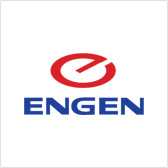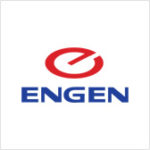
- By: News
- 0 comment
- South Africa burns a lot of petrol – and selling it may be for you.
- Here’s how to open your own independent petrol station, or buy an existing petrol franchise, and the advantages and pitfalls of each.
- Be warned, it is not for everyone, and it isn’t cheap.
- If petrol isn’t your thing, see below for links to articles about opening up franchises in fast food, retail, and other sectors.
- For more stories go to www.businessinsider.co.za.
South Africa pumps more petrol than any other country on the continent – some 11.7 billion litres per year, according to the Department of Energy. Diesel isn’t far behind.
If such figures, and South Africa’s climbing petrol price, tempt you into buying a petrol station of your own, keep in mind that the profits from these billions of litres pumped don’t all end up in the pockets of petrol station owners.
Petrol stations in South Africa are tightly regulated, with almost 60% of the petrol price now going towards various taxes, levies, and margins. And factors like labour costs, fluctuating oil prices, port delays, the power of large oil companies, and the strength of the rand, can all impact on profit margins and unpredictability. It’s also a business that has no downtime – most filling station franchises must remain open 24 hours a day, every day of the year.
Couple that with the need for huge capital outlay and large amounts of working capital, and you might actually be happier to continue paying someone else to handle the hassle of filling up your vehicle.
Still, given our dependence on petrol and diesel, the fuel retail industry is surprisingly resilient. There are close to 5,000 service stations in South Africa, and according to the Department of Energy, and these have an annual turnover of approximately R220 billion.
Although fuel sales still make up the majority of the profits at filling stations in South Africa (according to Absa, between 80% and 90% of profits), the additional income from forecourt businesses like convenience stores, coffee shops and restaurants, can be a nice backup.
In South Africa you can either start an independent filling station, or buy an existing franchise.
Opening an independent fuel station
The independent route allows for greater freedom, and potentially greater profit, without the restrictions of a parent company. In theory, if you know what you’re doing and have enough cash, you can establish a filling station with your own brand.
New sites for petrol stations require approval from government, and you’ll need to jump through several legislative hoops as stipulated in the rather daunting Petroleum Products Act regarding petroleum products site and retail licences.
Before you can even think about pumping petrol, you’ll need to obtain environmental authorisation and land use rights. Once you have these approved you apply for your operating licenses. Not getting the approval right could be a real problem.
See also: Guilty: BP has been convicted of environmental crime in South Africa – and could now face massive fines
If you’re familiar with the petrol industry and you want to go independent, your best bet is to purchase an existing filling station. This may enable you to bypass some aspects of the Petroleum Products Act that governs locations of new stations.
Opening a petrol franchise via Engen, Shell, or other oil companies
A far safer option for first-time owners is to buy an existing franchise from one of the major oil companies, even if it comes with some restrictions. You’ll be tapping into the expertise, workflow and brand of established players.
Most major oil companies operate their customer-facing operations as franchises in South Africa.
The likes of Engen, Shell, Caltex, BP, or Sasol are open to new franchise locations, but with licensing and locations hard to come by, your best option may be to purchase an existing franchise operation.
The cost of these franchises vary according to the location, fuel pumped, and other add-ons like convenience stores.
Engen is currently selling a relatively small franchise in Gauteng for R2.6 million, excluding stock and assets. It has no convenience store, and pumps an average of 267,000 litres of fuel per month.
Engen requires 20% of this selling price in unencumbered cash and a working capital stash of R1.2 million.
A larger Engen petrol station in Johannesburg pumping close to 200,000 litres of fuel per month, with a forecourt Quickshop, is currently selling for just over R4 million.
The working capital required for this location is R1.3 million.
The convenience store adds to the cost of the station, but according to Engen in this case it generates R309,000 in average monthly turnover.
At the top end of the scale you can expect to pay closer to R7 million for an Engen. This is for a filling station with a Quickshop and Corner Bakery franchise that pumps an average of 300,000 litres of fuel per month.
Engen also requires that applicants will complete a psychometric assessment at their own cost to ensure a good fit with the business.
Similarly, a large Sasol filling station can easily cost tens of millions. The company is currently selling a franchise in Gauteng, with convenience store a monthly fuel average of 315,000 litres, for R10 million.
A smaller Sasol franchise in Port Elizabeth, that sees an average of 203,300 litres per month, is currently on the market for just under R6 million.
Most major petrol station franchisors require new owners to undergo an extensive vetting process and pass exams before they can proceed to the actual building or handover phase.
After passing the exams and psychometric assessment, and handing over the required percentage of unencumbered cash, you can then begin the thankless task of pumping fuel to a constant stream of grumbling motorists.
https://www.businessinsider.co.za/petrol-station-fuel-service-station-fuel-industry-pumping-petrol-2019-5


